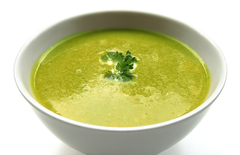by Neelanjana Singh, President Indian dietetics association, Delhi chapter
In my introductory piece on weaning, I covered many aspects to give you a bird’s eye view on it. Weaning, as I have explained, is a process rather than a one-time event. The process is about expanding the infant’s diet to include items other than milk (breast/formula). The foods that are introduced as starter foods in the diet of the baby are called complementary foods. These foods are needed to provide extra nutrients, especially iron, for the growing baby. Milk happens to be a poor source of iron.
I shall now break down the different aspects of weaning to simplify the process for new mums. In my experience of interacting with young mothers, I know that anxiety begins with the question of when it is best to start the weaning process. There is no doubt that this is an important developmental milestone for the infant, and we want to make sure that it is done at the right time. I remember the case of Mitali, a harried new mum, who came to me saying that her mother-in-law was insisting on introducing the complementary foods in her baby’s diet, who had just completed four months. Her mother-in-law argued that she had done so for her children, and they fared well. She also insisted that she could tell from her experience of having raised three children that her grandchild was ready for solid foods. Mitali had read and heard repeatedly that up to 6 months of age, it is important to exclusively breastfeed the infant. Her knowledge was theoretical, while her mother-in-law was speaking from experience. What was the right thing to do? She wanted to know if weaning earlier, as suggested by the mother-in-law, would offer an advantage, or would be detrimental. New mums are commonly faced with such dilemmas and pressures, which is why it is important to address them.
Here is why it is recommended to wait until the age of 6 months before starting with solids:
1. Breast/formula milk caters to all the requirements of the baby and is the best form of nutrition until this stage of development.
2. In the case that complementary foods are inaugurated before the age of 6 months, it will mean that some of the nutrients derived from the milk, which are important at this stage, would fall short.
3. The baby’s digestive system is under the process of maturing and it is only by the age of 6 months that it is ready to digest some foods (foreign matter) other than milk.
4. The baby’s coordination and swallowing reflexes are better developed by this stage. This reduces the risk of choking.
 |
Around the age of 6 months, one can also observe physical signs that are indicators of the baby’s readiness to start weaning. These signs are:
1. Baby being able to sit up comfortably
2. Baby being able to hold the head steadily in an upright position
3. Is able to swallow (i.e. able to push food back rather than push it out of the mouth)
4. Is able to pick up the finger foods and put it into their mouths.
However, wanting extra feeds, waking up in the middle of the night, and chewing on fists, are not indicators of readiness, although they are mistakenly taken to be so.
It is also not uncommon to hear that weaning could begin at 4 months. Yes, there may be certain situations when complementary foods are started earlier i.e. at the age of 4 months. This is when:
1. The baby is not gaining weight as expected
2. The baby is not getting enough breast milk and seems to be hungry.
Needless to say, the effort should first be directed at boosting the breast milk supply through various means.
 |
Early weaning may also be allowed in some cases if the baby is already on formula milk i.e. already exposed to foreign matter.
For a prematurely born baby, the time to start complementary foods is at the corrected age of 4-5 months. This means that the weaning schedule for premature babies may differ from that of the term born babies.
Coming back to Mitali’s case; because her baby was happy and gaining weight on breast milk, there was no indication to start weaning earlier than at 6 months. She managed to convince her mother-in-law to wait another two months before introducing complementary foods.
The point to remember here is to never start weaning before the baby is 4 months old. Any food introduced before the age of 4 months carries risks. Both the digestive system and the immune system of the baby are not geared to deal with foreign matter until the age of 4 months.
It’s important to keep in mind that weaning is a process and a gradual one. The baby has to get accustomed to different tastes and textures, and the mother has to be watchful and alert while the new process is on.
When weaning begins, it does not mean that the milk feeds need to stop. You must continue breastfeeding up to one year and could go on till two years if comfortable with it.
Now comes the big question–what would qualify as the best first foods for the baby, and are there any foods to be avoided at this point in time? Stay tuned for more discussions on this subject.
|
Check out part of the Nutrition In The First 1000 Days Of Your Baby’s Life |
The views and opinions expressed are those of the author.
 Neelanjana Singh has had over 25 years of clinical experience as a dietician and diabetes educator at AIIMS, the Sitaram Bhartia Institute of Science and Research and the Diabetes Foundation. Neelanjana has also been associated with the WHO as a member of its committees and projects on nutrition and health. Her book “Our Kid Eats Everything” is a fountain of practical advice!
Neelanjana Singh has had over 25 years of clinical experience as a dietician and diabetes educator at AIIMS, the Sitaram Bhartia Institute of Science and Research and the Diabetes Foundation. Neelanjana has also been associated with the WHO as a member of its committees and projects on nutrition and health. Her book “Our Kid Eats Everything” is a fountain of practical advice!

